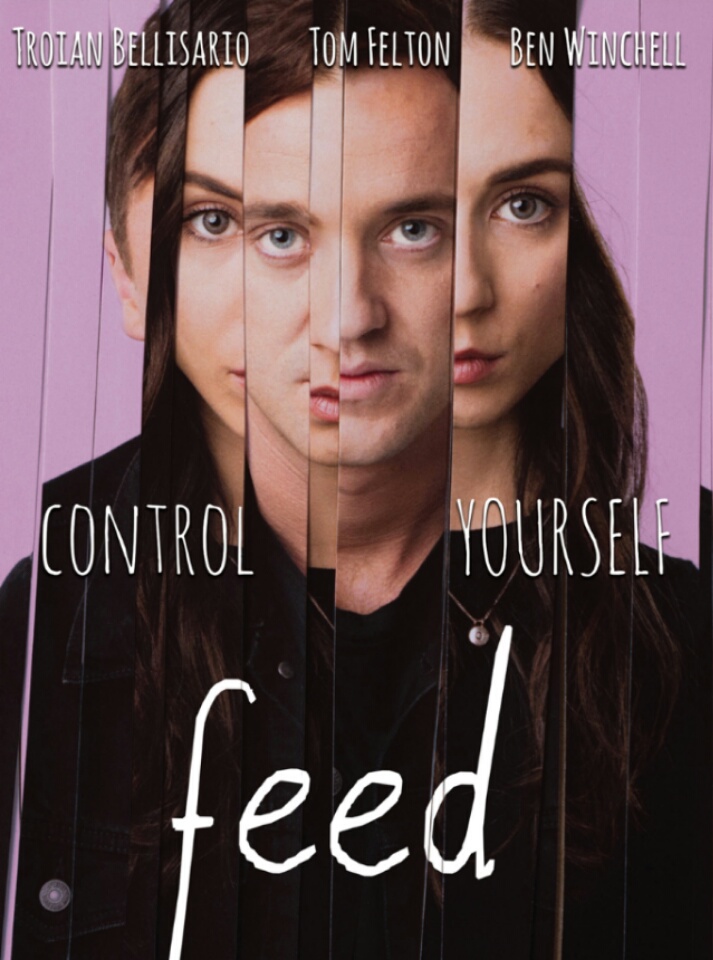 After much controversy and mixed emotions following the release of “To the Bone,” the first major motion picture film about eating disorders, I was hesitant to watch yet another movie whose main character embodied the beautiful, perfectionistic, white, young female stereotype of a person living with anorexia.
After much controversy and mixed emotions following the release of “To the Bone,” the first major motion picture film about eating disorders, I was hesitant to watch yet another movie whose main character embodied the beautiful, perfectionistic, white, young female stereotype of a person living with anorexia.
‘Feed,” a film written, directed and acted by “Pretty Little Liars” star, Troian Bellisario, follows Olivia, who begins engaging in disordered eating as a way of coping with the overwhelming feelings of loss, guilt and loneliness after the tragic death of her twin brother.
Overall, I thought this film did a fairly decent job of representing the biopsychosocial factors that can contribute to the onset of an eating disorder, something that I felt “To the Bone” didn’t do a good job of highlighting. What we know is that no one thing causes an eating disorder. Most often it is a whole slew of scenarios that come together. They include biological (genetics), psychological (temperament, co-occurring disorders like anxiety/depression) and social (environment, history of bullying, dieting culture, trauma etc)
In this movie, factors that contributed to the onset of Olivia’s eating disorder included her being a twin (we’re still not totally sure why, but being a twin is a risk factor for developing an eating disorder), being a perfectionistic high achiever and the trauma of her brother dying.
At times, this film was a bit reminiscent of a Lifetime after school special, in that it was a bit over-the-top dramatic. But what I really liked about the film was how they externalized Olivia’s eating disorder as a physical manifestation of her brother, Matt. Because mental illnesses themselves are invisible, it is difficult to depict what it is like to struggle with one, especially without showing behaviors that could be triggering to others. Using Matt as a metaphor for the feelings of guilt and loneliness, Olivia found solace in the “control” that her eating disorder provided for her.
In his role as the eating disorder, Matt controlled Olivia’s consumption of food by claiming that he was hungry and that she should give his food to him. He told her that she needed to keep studying, keep running and trust nobody, assuring her that he was the only one who cared about her and that he would never leave her.
In eating disorder treatment, sometimes patients and their families feel validated when we externalize the eating disorder as a being separate from themselves or their loved one. This helps to make sense of behavior that may not seem characteristic of the person before the eating disorder took over. I liked that the movie depicted a physical representation of what it’s like inside the head of someone living with an eating disorder. The internal battles, the influence that “the voice” has over a person and how it can wreak havoc on relationships and activities that were once important. We never saw this in “To the Bone” either.
By the end of the movie, Olivia was able to recognize that the Matt that was in her head was not the Matt she knew as her brother. She eventually recognized and radically accepted that her brother had died. Olivia said, “When he left this world I made up a new one.” She mentions that in this made up world, Matt was alive and if she did everything that he said, he wouldn’t leave her again. In the process of living in this “fantasy world” she slipped away from her real life and everything/everyone that mattered there.
I also appreciated that the end was hopeful but realistic. Olivia was out to lunch on a pass from treatment with her romantic interest. Right before the movie ends, a plate of food was put in front of her. For a moment, “Matt” could be seen in the background, representing her eating disorder thoughts. Her friend asked her if she was okay, and the picture gets clear again and Olivia answers, “yes, I’m fine.” This represents the fact that, yes eating disorder thoughts may come up – even when in recovery – but they are able to come and pass much quicker and without the need to use behaviors to cope.
As always, if you are in the early stages of recovery, or are still living with an eating disorder like anorexia or bulimia, I would strongly suggest an honest conversation with yourself and with your treatment team in order to assess the appropriateness of viewing this film. If you do ultimately choose to watch, I would encourage you to do so in the company of a loved one who can provide informed support.
We know finding eating disorder treatment can be tough. Walden is here for you. If you are concerned that you, or a loved one, may have an eating disorder, please reach out by completing the form on this page or email us at intake_coordinators@waldenbehavioralcare.com.
Natalie Cohen is the Senior Marketing and Community Relations Associate as well as the Social Media Coordinator. She earned her Bachelor of Arts degree in Journalism from the University of Maine in Orono. Her favorite part of working at Walden is being able to act as an advocate for clients suffering with mental illnesses and interacting with other eating disorder professionals in the community. In her free time, Ms. Cohen enjoys practicing yoga and spending time with her dog, Bella.






